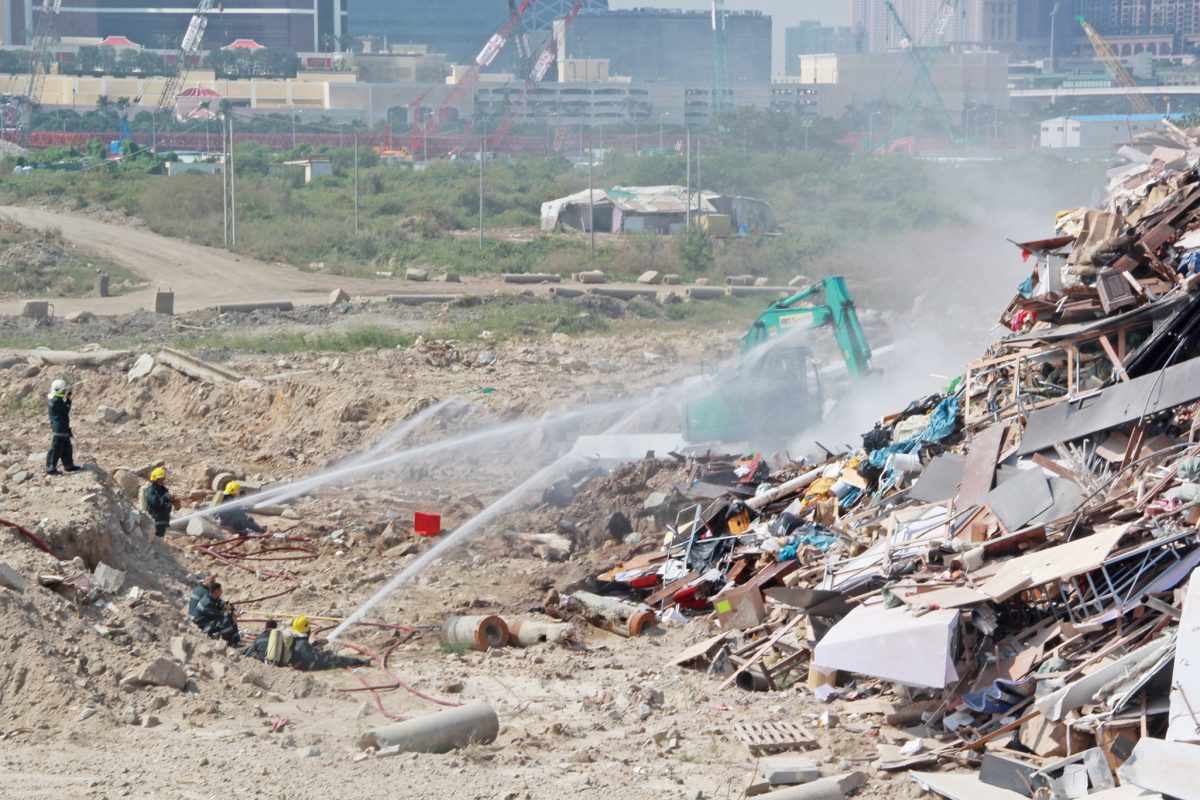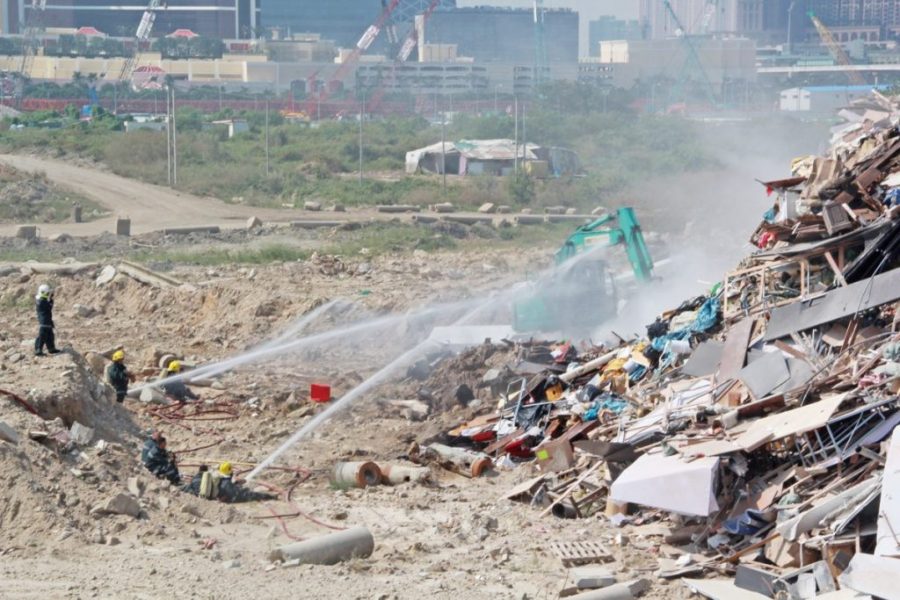When the charging of the disposal of construction waste in the city’s only construction waste landfill starts in January next year, the disposal of “inert” construction waste – such as soil, gravel or concrete blocks –will cost MOP 70 per tonne, while those dumping “special” construction waste – such as sediment or mud – will be charged MOP 200 per tonne, according to a chief executive order published in the Official Gazette (BO) on Monday.
In July, the government announced a by-law regulating the city’s dumping and processing of construction waste, officially known as Construction Material Waste Management System, according to which those dumping construction waste in the landfill will have to pay. The new by-law will take effect on 17 January next year – i.e. 180 days after its promulgation in the Official Gazette on 20 July – when the government starts charging those who discard construction waste in the landfill in east Cotai.
Government-drafted by-laws, officially known as administrative regulations, do not require the legislature’s approval.
Currently, those disposing of construction waste in the landfill, located in Avenida do Aeroporto, do not need to pay.
The current landfill for construction waste, the city’s only one, has been in operation since 2006. The dump at the east end of Cotai was already overfull a few years ago, and government officials have warned that the landfill is facing the risk of collapsing. The government launched a project to expand the capacity of the landfill – which is located near the airport and the Light Rail Transit (LRT) depot – last year.
According to the new administrative regulation, permits issued by the Environmental Protection Bureau (DSPA) will be required for vehicles dumping construction waste in the construction waste landfill.
The administrative regulation states that the dumping fees, based on the kind and weight of the dumped construction waste, are to be determined by the chief executive in an executive order.
Monday’s chief executive order sets the dumping fees for “inert” construction waste and “special” construction waste at MOP 70 per tonne and MOP 200 per tonne respectively.
According to the new Construction Material Waste Management System, “inert” construction waste refers to the one which has been sorted and can be used as filling materials, such as soil, gravel and concrete blocks.
According to the new by-law regulating the city’s dumping and processing of construction waste, “special” construction waste refers to excavation materials such as sediment and mud, and other materials such as asphalt, fibreglass and thermal insulation cotton.
In addition to “inert” and “special” construction waste, the new administrative regulation also covers “other” construction waste, which refers to flammable residues, chemical residues and recyclable materials.
While “inert” and “special” construction waste will have to be dumped in the construction waste landfill, flammable residues will have to be delivered to the city’s incinerator in Pac On for processing, chemical residues will have to be delivered to the adjacent Special and Hazardous Waste Treatment Plant for processing and recyclable materials will have to be delivered to recycling operators for processing, according to the new by-law.
Monday’s chief executive order sets the dumping fees for “other” construction waste also at MOP 200 per tonne.
(The Macau Post Daily/Macau News)
PHOTO © Exmoo






